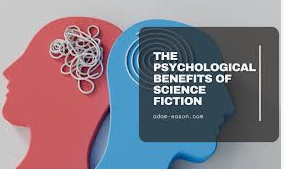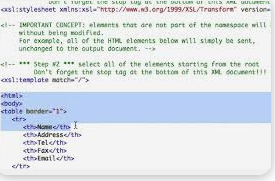Questionable questioning can arise when participants engage with platforms like DV Auction, particularly regarding the legitimacy of listings and the trustworthiness of sellers. Given the online nature of the platform, users might wonder about the authenticity of the items being auctioned and whether the sellers are reputable. To address these concerns, the platform provides detailed descriptions and images of each listing, along with user reviews and ratings that can help buyers make informed decisions.
It is essential for participants to be vigilant and conduct their research before placing bids. Users can check the auction’s terms and conditions, as well as any available seller history, to gauge credibility. By approaching the auction process with a critical eye and utilizing the resources provided by DV Auction, participants can mitigate risks and enhance their overall experience while navigating this dynamic marketplace.
What Is Questionable Questioning And Why Does It Occur?
Questionable refers to the practice of asking questions that may lead to confusion, misinterpretation, or manipulation in conversations. This type of questioning often arises in contexts where the intent behind the questions is not clear, leading to potential misunderstandings among participants. It can occur in various settings, such as interviews, debates, or even casual conversations, where the questioner may be seeking to provoke a specific response or elicit information in a misleading manner.
Such questioning can emerge from a desire to assert control or challenge someone’s viewpoint rather than genuinely seeking clarity or understanding. Additionally, it may occur when individuals lack a thorough understanding of the topic being discussed, prompting them to ask ambiguous or poorly formulated questions. Recognizing and addressing questionable is crucial for fostering effective communication, as it encourages a more constructive dialogue and helps prevent conflicts stemming from miscommunication.
How Can I Identify Questionable Questioning In Discussions?
Identifying questionable questioning in discussions involves paying attention to the intent and structure of the questions being asked. One clear indicator is the use of leading or loaded questions, which are designed to elicit a specific response rather than encourage open dialogue. These types of questions can create an atmosphere of defensiveness, making it challenging for participants to express their genuine thoughts or feelings.
Another sign of questionable is the tendency to ask vague or ambiguous questions that lack clarity. When questions are poorly formulated or fail to provide sufficient context, they can lead to misunderstandings and confusion among participants. By actively listening and critically analyzing the questions posed during discussions, individuals can better navigate conversations and foster a more constructive and open dialogue.
What Are The Effects Of Questionable Questioning On Communication?
Questionable can significantly hinder effective communication by creating barriers between participants. When individuals use leading or ambiguous questions, it can lead to misunderstandings and misinterpretations of the intended message. This not only frustrates the conversation but may also result in participants feeling defensive or disengaged, undermining the collaborative nature of discussions.
Such questioning can skew the direction of the conversation, as it often pushes individuals toward specific responses rather than allowing for open exploration of ideas. This can stifle creativity and critical thinking, as participants may feel pressured to conform to a particular viewpoint or narrative. Ultimately, the effects of questionable can create an environment that discourages honest dialogue, making it challenging to reach mutual understanding or consensus.
How Can Questionable Questioning Be Addressed Effectively?
Addressing questionable effectively requires cultivating awareness and promoting clarity in communication. One approach is to encourage participants to rephrase ambiguous or leading questions to ensure they are open-ended and invite genuine responses. This not only helps clarify the intent behind the questions but also fosters a more inclusive atmosphere where all parties feel comfortable sharing their perspectives.
Implementing active listening techniques can significantly improve the quality of discussions. By focusing on understanding the speaker’s viewpoint before formulating responses, individuals can better recognize when questions may be problematic. Encouraging feedback and creating an environment where participants can respectfully challenge questionable questioning can further enhance communication, leading to more productive and meaningful interactions.
What Strategies Help Prevent Questionable Questioning In Conversations?
Preventing questionable in conversations starts with establishing clear communication guidelines among participants. Encouraging the use of open-ended questions can create a more constructive dialogue, allowing for a wider range of responses and deeper discussions. By focusing on questions that invite elaboration rather than simple yes or no answers, individuals can promote an environment that values diverse perspectives and fosters understanding.
Another effective strategy is to practice active listening, which involves fully engaging with the speaker and reflecting on their message before responding. This not only helps identify potentially problematic questions but also ensures that responses are relevant and thoughtful. Additionally, creating a culture of respectful inquiry, where participants feel comfortable seeking clarification and providing feedback, can significantly reduce the occurrence of questionable and enhance overall communication.
How Does Questionable Questioning Impact Decision-Making Processes?
Questionable questioning can profoundly impact decision-making processes by introducing ambiguity and confusion into discussions. When questions are unclear or misleading, they can lead participants to draw incorrect conclusions, which may affect the overall quality of the decisions made. This lack of clarity can also result in important information being overlooked, ultimately hindering the ability to make well-informed choices.
Questionable questioning can create a sense of distrust among team members, as individuals may feel manipulated or pressured to conform to certain viewpoints. This atmosphere of uncertainty can stifle open dialogue and discourage constructive feedback, leading to decisions that lack thorough consideration of diverse perspectives. Ultimately, fostering clear and transparent questioning practices is essential for enhancing collaboration and ensuring that decision-making processes are effective and inclusive.
Addressing questionable questioning is vital for fostering effective communication and decision-making in any setting. By encouraging open-ended questions and promoting active listening, individuals can create an environment that values clarity and diverse perspectives. Ultimately, recognizing and mitigating the impact of questionable questioning will enhance dialogue and lead to more informed and collaborative decisions.
Read more at our website.












